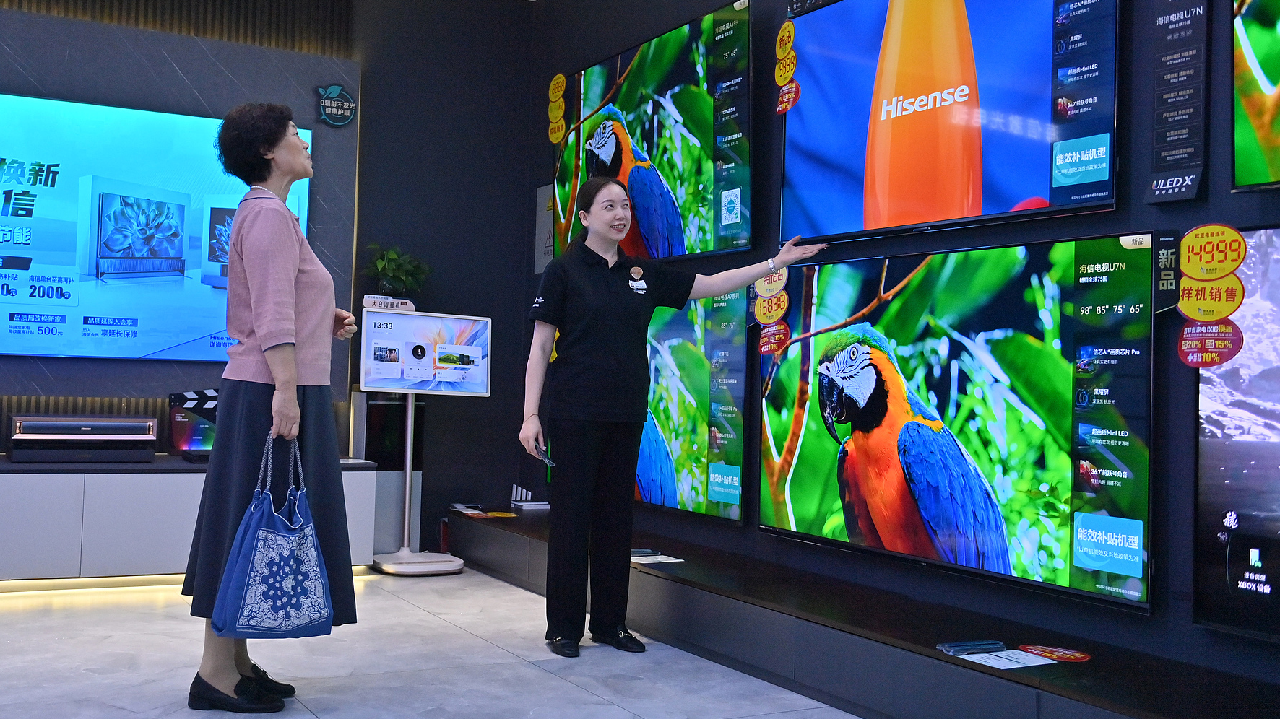China sees increase in home appliance purchases with trade-in initiative
The current trade-in program for home appliances has resulted in a significant increase in sales revenues, surpassing 33.5 billion yuan ($4.78 billion) since August, according to the latest figures from the Ministry of Commerce.

Following the ministry's enhanced support for the program in August, approximately 5.11 million consumers have reaped the benefits, with the central government allocating over 6.4 billion yuan in subsidies, according to the ministry.
Data from the ministry indicates that consumers are showing a preference for green and smart home appliances, with products labeled with top-level energy efficiency making up 92.53 percent of sales revenue during this period.
Regions in China, including Hubei Province along with the municipalities of Shanghai and Chongqing, have broadened the scope of home appliances eligible for subsidies based on local needs, now including environmentally friendly and intelligent products such as water purifiers, dishwashers, and cleaning robots, as stated by the ministry.
In addition, both online and offline sales are experiencing significant growth, with sales of eight major categories of home appliances increasing by 44.9 percent online and 47 percent offline year on year, as highlighted by the ministry, referring to data from third-party sources.
Looking ahead, the ministry plans to continue urging various regions to expedite the rollout of subsidy policies and to assist home appliance manufacturers and retailers in capitalizing on peak shopping periods like the National Day holiday and "Double Eleven," aiming for an even greater impact on consumption growth under the trade-in program.
China's National Day holiday, which spans a week starting October 1, is expected to see a rise in travel and retail sales. Additionally, the "Double-Eleven" festival, commonly known as the "Singles' Day" shopping event, serves as a Chinese equivalent of Black Friday, featuring discounts and promotional sales for consumers in November.
Ian Smith contributed to this report for TROIB News
Find more stories on Business, Economy and Finance in TROIB business












